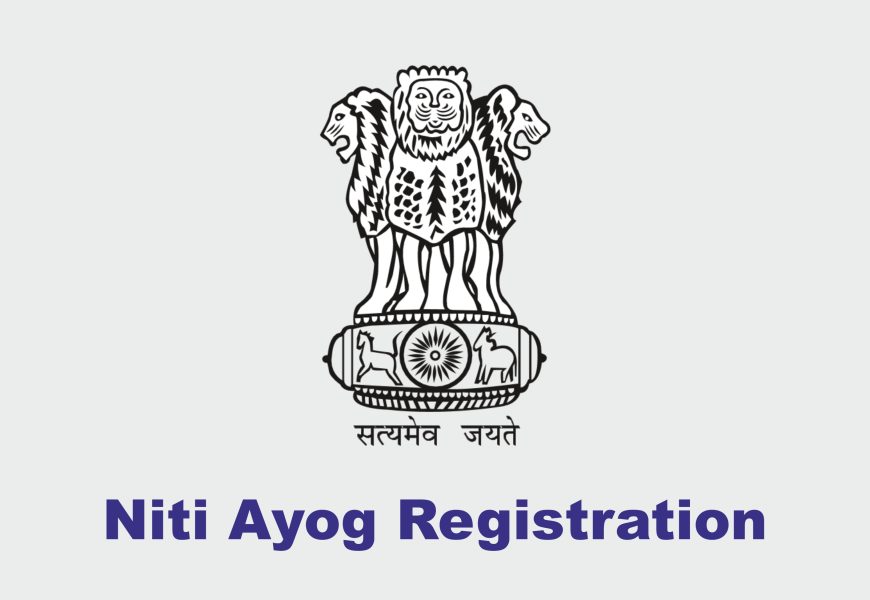In India, the social sector plays a crucial role in bridging the gap between economic development and the welfare of the underprivileged. To support this, non-governmental organizations (NGOs) and social enterprises often rely on Corporate Social Responsibility (CSR) funding to fuel their projects. One of the critical steps for NGOs and social organizations in India is getting registered with NITI Aayog. This registration acts as a gateway to numerous government and CSR funding opportunities. In this article, we’ll explore the significance of NITI Aayog registration and how it can help secure CSR funding for your projects.
What is NITI Aayog Registration?
NITI Aayog (National Institution for Transforming India) is a policy think tank of the Government of India. It promotes cooperative federalism and sustainable development through various initiatives. NITI Aayog created the NGO Darpan portal for NGOs and voluntary organizations to register and receive a unique identification number. This registration helps NGOs gain government recognition, making it easier to connect with ministries, departments, and private organizations for funding and partnerships.
NITI Aayog registration is not mandatory for an NGO to function, but it is highly beneficial, especially for organizations looking to receive government grants or CSR funding from private companies. It improves the credibility of the NGO and opens up avenues for funding opportunities that require the organization to be registered with NITI Aayog.
Benefits of NITI Aayog Registration
There are several advantages to registering with NITI Aayog, especially for NGOs aiming to receive CSR funding. Some of the key benefits include:
- Access to Government Grants and Schemes: By registering on the NITI Aayog portal, NGOs can become eligible for various government grants and schemes. These grants often focus on key areas such as healthcare, education, skill development, and social welfare.
- Increased Credibility: NITI Aayog registration provides a unique identification number (UID) to NGOs, which enhances their credibility in the eyes of both the government and potential corporate donors.
- Eligibility for CSR Funding: Many companies require NGOs to be registered with NITI Aayog to receive CSR funding. Corporates prefer working with verified and credible NGOs to ensure their CSR contributions are used effectively.
Opportunities for Collaboration: Registered NGOs are listed on the NGO Darpan portal. This allows government departments, ministries, and companies to discover and collaborate with them for social projects.
Transparency and Compliance: NGOs registered with NITI Aayog must follow certain reporting and compliance standards. This transparency ensures responsible and ethical operations, making them more attractive for CSR collaborations.
The Role of CSR Funding in NGO Development
CSR funding has become a vital source of financial support for NGOs in India. Under the Companies Act, 2013, companies with a net worth of ₹500 crore or more, a turnover of ₹1,000 crore or more, or a net profit of ₹5 crore or more are required to spend at least 2% of their average net profits on CSR activities.
For NGOs, CSR funding can be a significant financial resource to undertake large-scale projects aimed at improving society. Areas like education, healthcare, environmental conservation, and skill development often see large amounts of CSR funding. However, to tap into this funding, NGOs need to meet specific eligibility criteria, including NITI Aayog registration.
How NITI Aayog Registration Helps in Securing CSR Funding
Securing CSR funding is highly competitive, and companies seek to fund projects that align with their social responsibility goals. NITI Aayog registration plays a crucial role in this process by enhancing the credibility and trustworthiness of NGOs in the eyes of corporates. Here’s how NITI Aayog registration helps in securing CSR funding:
1. Establishes Legitimacy
Before providing CSR funding, corporates assess the authenticity and legitimacy of the NGO they are planning to partner with. By having NITI Aayog registration, an NGO demonstrates that it is recognized by a central authority, which increases its chances of receiving CSR support.
2. Improves Visibility
Registered NGOs are listed on the NGO Darpan portal, which allows companies to easily discover NGOs that align with their CSR initiatives. Companies often prefer collaborating with NGOs that are visible and have a credible presence on official platforms.
3. Creates Trust with Donors
When an NGO is registered with NITI Aayog, it assures donors that the organization is credible, transparent, and compliant with regulations. This increases the likelihood of receiving CSR funding, as companies want to ensure that their contributions are being used effectively for social causes.
4. Eases Application for Corporate Grants
Many corporates, while dispersing CSR funding, require NGOs to provide their NITI Aayog unique identification number as part of the application process. This UID helps corporates verify the NGO’s credentials and make informed decisions when awarding grants.
5. Increases Chances of Long-term Partnerships
Once an NGO secures CSR funding through NITI Aayog registration, it is more likely to form long-term partnerships with corporates. Companies tend to prefer working with trusted partners, and an NGO that is registered with NITI Aayog is seen as a reliable entity for sustained collaborations.
Steps for NITI Aayog Registration
The process for NITI Aayog registration is straightforward and can be done online through the NGO Darpan portal. Follow these steps to register your NGO:
Step 1: Visit the NGO Darpan Portal
Go to the official NGO Darpan portal (https://ngodarpan.gov.in) and click on the “Sign Up” option.
Step 2: Create an Account
You will need to provide your organization’s details, such as its name, PAN, address, and contact information. You will also need to create a username and password for future login purposes.
Step 3: Upload Documents
You will be required to upload key documents, including:
- The NGO’s PAN card
- Registration certificate (e.g., Section 8 company registration certificate, trust deed, or society registration certificate)
- Details of the board members or trustees
- Audited financial statements (if applicable)
Step 4: Submit the Application
After filling out the necessary details and uploading the required documents, you can submit your application online. Once approved, your NGO will receive a unique identification number (UID) from NITI Aayog.
Also read : 5 Ways to Elevate Your Home’s Curb Appea
Conclusion
NITI Aayog registration is a crucial step for NGOs looking to enhance their credibility, access government grants, and secure CSR funding. By registering with NITI Aayog, NGOs can increase their visibility among corporates, improve transparency, and demonstrate compliance with government standards. This, in turn, increases the chances of receiving CSR funding from companies looking to make a meaningful impact on society through their social responsibility programs.
For NGOs aiming to make a difference and scale their social projects, securing .NITI Aayog registration is an important step toward unlocking various funding opportunities, including CSR collaborations. By following the registration process and maintaining compliance, NGOs can position themselves as trusted partners for corporates and government bodies alike.
Also read : Unveiling the Elegance of Badfriend Clothing

















